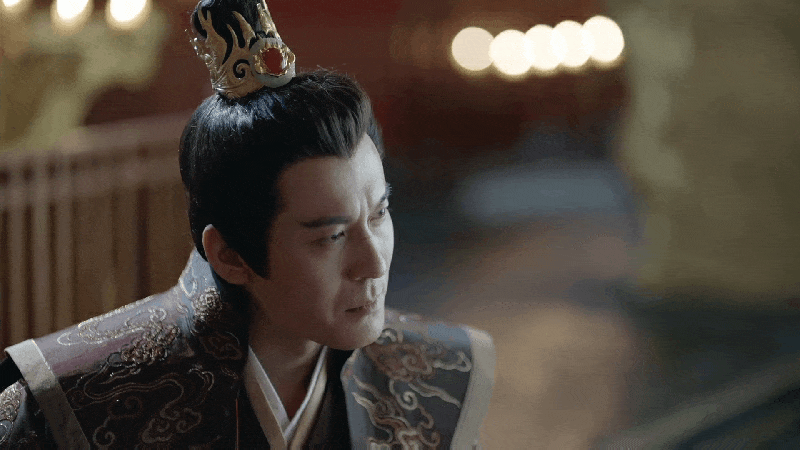#施耐庵
Explore tagged Tumblr posts
Text
有緣千里來相會,無緣對面不相逢。
【注音】 ㄧㄡˇ ㄩㄢˊ ㄑㄧㄢ ㄌㄧˇ ㄌㄞˊ ㄒㄧㄤ ㄏㄨ���ˋ, ㄨˊ ㄩㄢˊ ㄉㄨㄟˋ ㄇㄧㄢˋ ㄅㄨˋ ㄒㄧㄤ ㄈㄥˊ
【拼音】 yǒu yuán qiān lǐ lái xiāng huì , wú yuán duì miàn bù xiāng féng。
(比喻人與人之間的機緣巧合,全憑緣分。
It is a metaphor for the chance coincidence between people, which all depends on fate.)
釋義 Definition ~
《水滸傳》 Shui Hu Zhuan (Water Margin) 第三五回:「宋江聽了大喜,向前拖住道:『有緣千里來相會,無緣對面不相逢。只我便是黑三郎宋江。』」也作「有緣千里能相會,無緣對面不相逢」。作者:施耐庵 Shi Nai'an
Water Margin is one of the earliest Chinese novels written in vernacular Mandarin, and is attributed to Shi Nai'an.
It is also translated as Outlaws of the Marsh and All Men Are Brothers. The story, which is set in the Northern Song dynasty (around 1120), tells of how a group of 108 outlaws gathers at Mount Liang (or Liangshan Marsh) to rebel against the government. Later they are granted amnesty and enlisted by the government to resist the nomadic conquest of the Liao dynasty and other rebels. While the book's authorship is traditionally attributed to Shi Nai'an (1296–1372), the first external reference to the novel only appeared in 1524 during the Jiajing reign of the Ming dynasty, sparking a long-lasting academic debate on when it was actually written and which historical events the author had witnessed that inspired him to write the book.
The novel is considered one of the masterpieces of early vernacular fiction and Chinese literature. It has introduced readers to many of the best-known characters in Chinese literature, such as Wu Song, Lin Chong, Pan Jinlian, Song Jiang and Lu Zhishen. Water Margin also exerted a significant influence in the development of fiction elsewhere in East Asia, such as in Japanese literature.
“有缘千里来相会无缘对面不相识。 If destined to meet, even those separated by a great distance will meet each other. If not destined to meet, even those who are face-to-face will not know each other.”
— Chinese Proverb (via unsensitised)
12K notes
·
View notes
Text

創作:芋煮羅貫中&子守バイト代行中の施耐庵&子守されてる林さんちの息子さん
11月17日 COMITIA150にて水滸伝の成立・受容史についての合同誌「SWITTERX」頒布予定です。 前回発行の本も読めるよ!
5 notes
·
View notes
Text
映画鑑賞
9月半ばのTOHOシネマズ池袋の山崎貴監督ゴジラシリーズセレクションの「ゴジラ」を皮切りに、先月まで7本の映画を計10回観に行ってました💕
ゴジラ関連では「ゴジラ(初代)」「三大怪獣地球最大の決戦」「ゴジラモスラキングギドラ大怪獣総攻撃」「ゴジラ-1.0」の4本。マイゴジは初日に立川シネマシティの極爆(これは意地でも絶対に外せなかった)と翌週少し落ち着いてから府中でMX4Dの2回。
実はシンゴジの時に4XDを体験してまして、そちらは動く基準がゴジラと自衛隊の両方で座席が作動したので正直映画に集中出来ず、微妙な印象だったんですよ😥
で、今度もあまり期待はしないよ���にして、でも一度は動く系で観てみたかったし、山崎貴氏と言えば西武園ゆうえんちのゴジラ・ザ・ライドを製作しておられるし……ということで、予約してみたんですね。感想はというと、ぶっちゃけ
すんごく楽しかったです😊💕🎶
もしかすると4XDとMX4Dの違いかもしれませんが、完全に人間側の体験に応じて作動するようになっていて、マイゴジ君への畏怖と絶望をよりいっそう味わえました。まだ西武園ゆうえんちのゴジラライドには行ってないのですが、あちらも早く乗りたいな~。
あ、マイゴジの感想は取りあえず地上波で放送するまでは🤐してますw前情報がない方が楽しいもん(公開1ヶ月も経過してんのに今更💦💦)
最低限のことを話すと、めっちゃ初代とシンゴジを意識してる!!話の持っていき方がどれもほぼ同じ。でもゴジラの描き方が3作品とも全く重ならない。ゴジラという素材に重要な縛りがあるのに、それをものともしないで自分のカラーを出せちゃうのって改めて凄いなと。それだけ魅力的なんですよねぇ、ゴジラという生き物は。
ちなみに山崎貴セレクションのゴジラシリーズ再上映は4本ありまして、あと1本でコンプリだったんですが、それを阻んだのは庵野カントクの「シン・ゴジラ オルソ」😭チケット争奪戦に競り負けました。ちっくしょーめ!!!
シンゴジをモノクロに再編集した本編もさることながら、上映前に実施される山崎監督とゲストのトークショーを見たかったんです。その回は司会も庵野カントクで2人だけの濃い内容になったそうです……1回目の樋口監督の時(この回の司会は笠井信輔アナ)も濃かったもんなぁ😅あと、劇場公開時のポスターを元にしたステッカーも欲しかったよぅ。
ゴジラ以外では「宇宙探索編集部」と「BLUE GIANT」が各々2回とCMで気になった「僕らの千年と君が死ぬまでの30日間」を新宿シネマカリテ&吉祥寺のアップリンク、立川シネマシティの極音、新宿バルト9の各シアターで。「宇宙探索編集部」は初回が月刊ムーの編集部とのコラボで三上編集長と辛酸なめ子女史のトークショー付きということで予約したのですが、睡眠不足で疲れていたこともあって導入部から暫くしての平坦な展開に耐えきれず、うっかりうたた寝しちゃった💦💦十数分足らずだったし大方は把握できたものの、そこが後々のどんでん返しに関��る内容だったこともありリベンジ決定👊👽👾🛸(2度めはしっかり全部観ました!!人にもよるとは思いますが、後半胸ワクだったので、📀が出たらもう一回見たいなぁ💗)
「BLUE GIANT」は元々公開された時から気になっていたのに、うっかり見逃しちゃっていたので、リバイバルが決まって2回ともガッツリ楽しみました。LIVEシーンが滅茶苦茶リアルで臨場感が物凄く、劇場で観れて本当に良かったです。📀だけだったら、絶対に足を運ばなかったことを後悔した音響だったもの🎷🎹🥁
逆に、微妙だったのは「僕らの千年と君が死ぬまでの30日間」
何故かというと、メディア展開されていて劇場版だけでなく過去編の舞台版がまず先にあって更にコミカライズもされており、全部把握しておかないと上手く劇場版の人物の感情が掴みきれない。
もちろん、劇場版だけでもある程度はSTORYに振り返りがあるので全く乗り切れなくはないのですが、やっぱり何故主人公2人が過去にそうなったか?の説明が弱いんですよね😥相手に傷を負わせるまでの愛憎と、2人が争うきっかけとなる女の子が双方とも助けようとした心の動きが掴み辛かった。あとメリバだし?それぞれの結論の出し方が結構重かったですね🗿
他にもミニシアター系で観たいのが数本あるんですが、あとひと月の間に観れ……ないうちに上映終了しちゃうだろうなぁ😭
1 note
·
View note
Text
宋江的原型究竟是誰?
在明初之際,中國文學領域迎來了一部經典的小說作品,《水滸傳》從此在人類文學藝術的堂皇空間裡閃耀著一顆永不熄滅的明星。當提到《水滸傳》時,不得不提及其作者施耐庵、他的學生羅貫中、主角宋江的原型張士誠,以及他們與鹽城淵源的故事。施耐庵是元朝時期的一位文人,他的本名叫做彥端,而字則是子安、肇瑞。他於元成宗元貞二年(1296年)出生在今天的鹽城市大豐區白駒鎮,當時所在的泰州海陵縣白駒場街市。他生活在一個非常動盪的時代,當時元朝統治者荒淫腐敗,人民生活困苦,而社會上的階層矛盾和民族矛盾也日益加劇,元帝國一步步走向瓦解。 在這樣的背景下,韓山童率先聲討當時的統治者,號召起義,並且有了「石人一隻眼,挑動黃河天下反」的名言。接著,劉福通、朱元璋在皖北發動了起義,方國珍在福建也點燃了革命的火炬,而陳友諒則在江西起事。整個帝國都被烈火吞噬,狼煙四起,顯示出時局的危險和複雜。 施耐庵生活在這樣的時代背景之…

View On WordPress
0 notes
Text
神明庇祐,改日 來 燒 紙 錢
第十回
觀看之間,只見樹影裡一個人 探頭探腦,望了一望,吐了一口唾,閃入去了
第六本,水滸傳
12 notes
·
View notes
Text
施耐庵祖上是孔子弟子,讓筆下武松化身儒家“五常”
https://s1.astrologs.net/c77c052c741447f8810c30e302824a17604023.jpg

縱觀《水滸傳》108將,武松在做人上是臻於完美的。《水滸傳》前七十回裏武松為主角的獨佔八回,除宋江是最多的(林沖佔七回、魯智深佔六回)。施耐庵如此偏愛武松,我想究其因武松是儒家五常“仁、義、禮、智、信”的化身,而五常是儒家提倡的做人起碼的道德準則。
Source
from 星玄説 https://astrologs.net/a/RVQ92ccbe9/
0 notes
Text
瓦罐難免井上破,將軍終究陣前亡
The pot cannot be broken except leaving the well, a general is meant to die at the battlefield.
It's from 水滸傳(shuǐ hǔ zhuán; Water Margin) by 施耐庵(Shī nài ān), in 明朝(ming dynasty). It's a story of 108 outlaws in 梁山泊(Liáng Shān pō) which is a part china now it's 濟寧(Jĭ níng), Southern part of china. The story is about how a group of 108 outlaws gather at Mount Liang(梁山) to rabel against the government. Later they are granted amnesty and enlisted by the government to resist the nomadic conquest of the Liao dynasty and other rebels. I have read this when I was young but I don't recall the phrase, as it's not that common phrase where I live. The actual line is,
瓦罐不離井上破,將軍必在陣中亡
A water pot cannot be broken around the well, a general must die in battlefront.
It means, the water pot is used to go to a well, so during it's used around the well it cannot be broken because it's in use, then when a person carries to somewhere the possibility of breaking rise. So Qin wang is saying that the water pot is 秦九霄(Qin jiuxiao), and the well is 晉州(Jin zhou). Qin jiuxiao was meant to die at battlefield.

天子之怒,流血漂櫓;布衣之怒,血濺五步,卻令天下縞素。
The emperor's wrath causes rowing on the blood, The scholar's wrath, the blood flows in five steps. Therefore, the taching was, making the world carefree.
This line is from 唐雎不辱���命(táng jū bù rǔ shǐ mìng; An achievement of embassador 唐雎) by 劉向 撰(liú xiàng zhuàn) in 兩韓(liang jhan)era . It's a dialogue of 秦王(King of Qin) and 唐雎(an embassador of 魏; wei). 唐雎 went to 秦 for negotiate territorial dispute between 秦(qin) and 魏(wei). The actual sentence is, Therefore, make the world carefree.
秦王曰:天子之怒,伏尸百万,流血千里。
Qin wang said: the emperor's wrath, countless bodies cover the land, the blood runs like a river.
唐雎曰:此庸夫之怒也,非士之怒也。若士必怒,伏尸二人,流血五步,天下缟素,今日是也。
Tang ju said: The wrath of normal people and talented people may differ. If a scholar with talent is persecuted, he will surely get angry. Then there will be two bodies and the blood would be five steps long, and every commoner will be mourning. Today, let it be.
The behind story here is that Qin wang wanted to have very wide territory to stop the war, when Wei were already in ruin. So Tang ju was actually on death mission that if he loose any territory of Wei, in anyways he would die by Qin wang either Wei wang. At the end Qin and Wei agreed on a treaty.
I love the time of Qin era which is BC. of Asian history, as my favourite chinese historical great human is 宣太后(Queen Dowager Xuan), So I remember him, 唐雎 is a textbook figure for diplomats for very long time as he didn't loose any territory only with a conversation. Even though Wei didn't last long for that.

晉王(Jin wang) is keep saying his retainers are peices on the chessboard(here it must be 碁;go board). Like whatever he does, there will be death bodies as far as it's not himself, those death doesn't really matter. Then for Zhou zishu is saying if a king doesn't think about the commoners, what meaning is there to be a king? This scene has many metaphorical meanings which can be found in historical drama. Look at thoese quoted sentences, it is definitely a conversation of a king and a noble man.
Jin wang is only thinking about himself, I'm not so sure even what he wants is Zhou zishu. Why he was angry at Zhou zishu is that Zhou zishu didn't say and ask him first to leave. When Zhou zishu had left, he said he just let him go for awhile, Jin wang had never let Zhou zishu go.
It's really shame, Wen kexing never knew Jin wang, I can't even imagine what would he do to Jin wang if he knows all these fiascos.


+ Oopsi daisy, it was (晉王)Jin wang not (欽王)qin wang (˵ ͡° ͜ʖ ͡°˵)
#山河令#word of honor#shan he ling#shl#산하령#배움이 짧아서 모르겠어#사서삼경#역사서..#왕이랑 도련님대화라 그런가#인용구가 아주 고급진것이 미쳤네#주자서랑 진왕#너무 맛있다#wenzhou#온주가 맛있는건 진왕때문이야#Jin wang is a spicy for wenzhou#Jin wang makes wenzhou taste better#How noble they are discussing things with old books and phrases#주자서 도련님 모먼트#ep30#ep 30
9 notes
·
View notes
Text
Outlaws of the Inland Sea
read it on the AO3 at https://ift.tt/1EBpacw
by RivvyElf
1000 years before the One Ring's Destruction, Gondor was almost destroyed in 1944 of the Third Age, setting off a chain reaction of events leading to the destruction of the Southern Line of Kings and Aragorn becoming the undisputed king of both Arnor and Gondor. But we only have the West's perspective of the 1944 event. What of the East? Travel beyond the Red Mountains and journey with us... into a World of Illusions.
This is a Water Margin crossover replacing the setting of China with Middle-Earth.
Words: 3717, Chapters: 2/?, Language: English
Fandoms: The Silmarillion and other histories of Middle-Earth - J. R. R. Tolkien, The Lord of the Rings - J. R. R. Tolkien, TOLKIEN J. R. R. - Works & Related Fandoms, 水浒传 - 施耐庵 | Water Margin - Shi Naian, 大秦帝國 | Da Qin Di Guo | The Qin Empire (TV)
Rating: Mature
Warnings: Graphic Depictions Of Violence, Major Character Death
Categories: Multi
Characters: Nuin (Tolkien), Lín Chōng (Water Margin), Sòng Jiāng (Water Margin), Lǔ Zhìshēn, Wǔ Sōng (Water Margin), Sauron | Mairon, Lu Junyi, Shi Jin (Water Margin), Wu Yong (Water Margin), Morinehtar (Tolkien), Chao Gai (Water Margin), Wáng Jìn (Water Margin), Zhū Wǔ (Water Margin), Yang Zhi (Water Margin), Yang Xiong (Water Margin), Shi Xiu (Water Margin), Hù Sānniáng (Water Margin), Li Kui (Water Margin), Gu Dasao (Water Margin), Huyan Zhuo (Water Margin), Guan Sheng (Water Margin), Nellas (Tolkien), Gao Qiu (?-1126 CE)
Additional Tags: Pre-Lord of The Rings, Crossover, The Silmarillion References, The Avari
read it on the AO3 at https://ift.tt/1EBpacw
1 note
·
View note
Text
廣東「潘金蓮」怒告范冰冰電影毀名譽 潘氏宗親力挺
馮小剛執導、范冰冰主演的《我不是潘金蓮》,在亞洲電影大獎奪下最佳電影、最佳女主角、最佳攝影等3��,不料隔天就傳…
廣東「潘金蓮」怒告范冰冰電影毀名譽 潘氏宗親力挺 was originally published on 風向新聞 | Kairos.news
1 note
·
View note
Photo










e-hon 絵本 - livre illustré “Suikoden 水滸伝“, 1829
Totoya Hokkei 魚屋北渓 (1780 - 1850).
Source : http://pulverer.si.edu/node/769/title/1
note : Suikoden 水滸伝 "Le Récit des berges", (chinois Shuǐhǔ Zhuàn 水滸傳 ) est un roman d'aventures tiré de la tradition orale chinoise, compilé et écrit par plusieurs auteurs, mais attribué généralement à Shi Nai'an 施耐庵 (1296?-1371?). Il relate les exploits de cent huit bandits, révoltés contre la corruption du gouvernement et des hauts fonctionnaires de la cour de l'empereur. Ce roman fait partie des quatre grands romans classiques de la littérature chinoise (1). fond historique : Song Jiang, le chef des bandits, est un personnage historique, chef d'une rébellion sous le règne des Song, à la fin du règne de Hui Zong. Il réussit notamment à s'emparer de la capitale orientale (Bian-Liang) et de la province de He Bei. Les troupes de l'empereur mirent des années à le vaincre. Apparition de la légende : Song Jiang et ses lieutenants devinrent très populaires et leurs exploits furent repris et enjolivés par la tradition orale à partir de la dynastie des Song du Sud (XIIe et XIIIe siècle). Des traces littéraires écrites des prémices de la légende ont été retrouvés dans Propos d'un vieil ivrogne de Luo Ye, puis dans une Apologie de Song Jiang et de ses trente-cinq compagnons. Les bases du roman commencent à être constituée au début de la dynastie mongole des Yuan, avec les Faits négligés de l'ère Xuan-he. La légende se précise et s'enrichit lors de cette dynastie, notamment sous l'essor du théâtre-opéra. (1) chinois traditionnel 四大奇書 - en japonais : shidaikisho 四大奇書 - les quatre grands romans classiques
#totoya hokkei#painter#painting#print#illustrated book#japan#peintre#peinture#estampe#livre illustré#japon#suikoden#ehon
53 notes
·
View notes
Photo
眼疾手快
注音 ㄧㄢˇ ㄐㄧˊ ㄕㄡˇ ㄎㄨㄞˋ
拼音 yǎn jí shǒu kuài
眼光銳利,動作敏捷。也作「手急眼快」。
ps.【疾】不是疾病的"疾",在這成語是指"疾速",速度快的意思。
【出處】明·施耐庵《水滸傳》第四十三回:“倘或被眼疾手快的拿了送官,如之奈何?”
youtube

眼疾手快
- Book of Han
Quick of eye and deft of hand.
In order to strike first, one must have excellent reflexes
112 notes
·
View notes
Photo

📸旧崇広堂庭園 / Kyu-Sukodo Garden, Iga, Mie 三重県伊賀市の国指定史跡『旧崇広堂』の庭園が素敵…! 伊賀上野の城下町で“赤門”の愛称で親しまれる、津藩10代目藩主 #藤堂高兌 が江戸時代後期に設立した藩校。米沢藩の名君 #上杉鷹山 による扁額が現在も掲げられる講堂の前に広がる回遊式庭園と、苔の美しい中庭の2つの庭園も…。国指定史跡。 三重・旧崇広堂庭園の紹介は☟ https://oniwa.garden/sukodo-iga-mie/ ...... 松尾芭蕉ゆかりの『蓑虫庵』の庭園に続き、2021年10月に初めて訪れた伊賀上野の城下町シリーズ🏯 伊賀市の庭園としては先に紹介した『城之越遺跡』が国指定名勝で文化財としては最もクラスが上ですが、市の中心部にも歴史的な街らしく幾つか庭園が。 . かつての上野城跡の南西部、外堀内に位置する旧崇広堂。伊賀や大和、山城国寄りの領地に住む藩士の子の教育のため、津の藩校“有造館”の支校として1821年(文政4年)に創立。 現在も掲げられる“崇広堂”の扁額は米沢藩主・上杉鷹山(上杉治憲)の筆🖌 . 1854年の安政の大地震(安政の伊賀上野地震)で当初の建築の多くは失われましたが🏚、現在施設として残されている玄関棟や72畳の広さの講堂(外観はお寺の本堂みたい)、御成門などは大地震に耐えその姿を現代に伝えます。 . 明治維新・廃藩置県の後は村立・町立の小学校として用いられた後、1905年(明治38年)から1983年(昭和58年)の約80年間は市立図書館として地元の方々に親しまれました。創建当初から残る表門にちなんで“赤門”の愛称も。 . 庭園はざっくり分けて2箇所。まずは講堂の前に広がる庭園。その名の通り匂玉のような形の“匂玉池”を中心とした池泉回遊式庭園。現在は水を入れていないみたいですが、池の北東部(匂玉の上のほう)には滝石組も残る。 . この池泉庭園、江戸時代の藩校の絵図には描かれていないみたいで…(中庭は描かれてる)。 庭園の一角(道路沿い)の“有恒寮”が今の場所に移されたのが明治時代なので、その際に作庭されたものかな…。 . そうだとしても既に100年以上が経過した近代の庭園ではあり、大きなモミジの木が秋にはきっと紅葉を見せているんだろう🍁 続く。 ーーーーーーーー #japanesearchitecture #japanarchitecture #japanesegarden #japanesegardens #kyotogarden #zengarden #beautifulkyoto #beautifuljapan #japanarchitect #japandesign #japanart #jardinjaponais #jardinjapones #japanischergarten #jardimjapones #bonsai #建築デザイン #アート #庭園 #日本庭園 #京都庭園 #庭院 #庭园 #伊賀上野 #igaueno #samuraihouse #国指定史跡 #おにわさん (at 史跡旧崇廣堂) https://www.instagram.com/p/CfoD9MbPiFE/?igshid=NGJjMDIxMWI=
#藤堂高兌#上杉鷹山#japanesearchitecture#japanarchitecture#japanesegarden#japanesegardens#kyotogarden#zengarden#beautifulkyoto#beautifuljapan#japanarchitect#japandesign#japanart#jardinjaponais#jardinjapones#japanischergarten#jardimjapones#bonsai#建築デザイン#アート#庭園#日本庭園#京都庭園#庭院#庭园#伊賀上野#igaueno#samuraihouse#国指定史跡#おにわさん
0 notes
Link
逼上梁山 Bīshàngliángshān Dipaksa naik ke gunung Liang 逼 – bī – memaksa 上 – shàng – naik 逼上 – bīshàng – mendorong ke atas 梁山 – liángshān – gunung Liang, sekarang berada di Shandong Arti Idiom 逼上梁山 Ini adalah idiom Tiongkok, yang berasal dari bab kesebelas Tepi Air (Hanzi:水浒传Pinyin: Shuǐhǔ zhuàn) karangan Shi Naian (Hanzi: 施耐庵, Pinyin: Shī Nài ān) pada Dinasti Ming – Lin Chong (Hanzi: 林冲, Pinyin: Línchōng) pergi ke Liangshan (Hanzi: 梁山, Pinyin:Liángshān) pada malam bersalju. Idiom ini umumnya digunakan sebagai predikat dan atribut dalam sebuah kalimat. Merupakan metafora yang berarti dipaksa untuk melawan, tetapi juga metafora untuk terpaksa melakukan sesuatu. Sekarang idiom ini sering digunakan untuk menggambarkan seseorang yang dipaksa melakukan sesuatu oleh suatu situasi. Terima kasih telah membaca, silahkan kunjungi Tionghoa Indonesia untuk artikel-artikel lain yang lebih menarik.
0 notes
Text
醉鬼扶牆!
上帝見世間紛攘,視人過而不觀己非,趨小利而忘大害,天
路難行而不禁黯然神傷曰:奈何?
軒轅愴曰:沈水入火,自取滅亡。
莊子歎曰:齊物。
老聃慰曰:無心。
如來悲曰:不受後有。
儒訥曰:克己。
道和曰:自然。
僧惚曰:平等。
羅貫中撫掌曰:一而三,三而一也。
施耐庵憤曰:逼上梁山,落草为寇。
曹雪芹泣曰:癩頭和尚火裡走,跛足道人水中遊。
吳承恩嗟曰:不尋外公,何以取真經?
蘭陵笑笑生吟曰:溪邊有女喚金蓮,潛思紫微望東南。一腔春情暖冬水,穿山越嶺勇向前。恰逢檀郎西門慶,如膠似漆抱成團……
老夫拍案大罵:操!怒曰:日死你老母!
孔丘聞言倒身便拜,贊曰:蒙醍醐灌頂,如夢方醒耳。
上帝曰:惜西人不曉。
對曰:剪徑之賊劫一身之資,入室之盜奪一戶之財,用高回報可使人四處舉債,以國家之名能讓人不惜身命。世之惡莫過於偽。以愛之名威逼別人服從,以公之名強迫別人犧牲。不知民主亦暴政,國家即枷鎖。科學如火,大盜是己。不思為因,塗炭為果。十字架上知苦後方明真義。
上帝無語…
老君勸曰:勿憂,西方不亮東方亮。
上帝疑曰:太上高見?
老君釋曰:東方乃天藏地密之處也。
突有醉鬼一語定乾坤曰:扶牆。
上帝驚曰:怎講?
對曰:西以十勝,東以識勝,東西和十識合即不勝而勝無不能勝也!正所謂坐鎮中央,以撫四方。
如來聞之竊笑,上帝遂轉憂為喜而贊曰:誠如是,天下又有何事哉!
0 notes
Text
#368 「細見コレクションの漆芸 根来 NEGORO -朱と黒のかたち-」 開催中!

2月10日(木)より、展覧会「細見コレクションの漆芸 根来 NEGORO -朱と黒のかたち-」を開催しております。
実用から生まれた「根来」は、木と漆の特性を最もよく活かした器といえます。 中世に紀州・根来寺で作られた飲食器や什器に始まるとされる根来塗は、用途に適した簡潔なフォルム、長年の使用に耐えうる堅牢な造り、明快な色彩〈朱と黒〉が特徴です。 漆を塗り重ねた丈夫な器の表面は、経年によって上塗の朱漆が擦れて中塗の黒漆が現れ、味わい深い塗肌となります。近代には、この塗肌の景色に魅せられた数寄者たちによって「根来」は華麗な蒔絵とは対極を成す漆芸の美として注目を集めることとなりました。 本展では、細見コレクションの創始者である初代古香庵(1901~79)が、自ら『根来の美』(1966年)を著すほど情熱を傾けて蒐集した「根来」を一堂に紹介します。

会期:2022年2月10日(木)~4月10日(日)
休館日:毎週月曜日(祝日の場合、翌火曜日
開館時間:午前10時~午後5時(入館は午後4時30分まで)
入館料:一般 1,300円 学生 1,000円
主催:細見美術館 京都新聞
新型コロナウイルス等感染予防および拡散防止対策について
新型コロナウイルス感染拡大防⽌のため、ご入館および施設のご利用にあたってはマスクをご着用ください。
急激な状況の変化により、⽌むを得ず会期・ 営業日時等を変更する場合があります。詳しくは細見美術館公式サイトをご覧ください。
0 notes
Text
2022阅读记录
已读完书籍
J.K 罗琳-《哈利波特与被诅咒的孩子》
J.K 罗琳-《平安小猪》
J.K 罗琳-《伊卡狛格》
鲁迅-《彷徨》
鲁迅-《阿Q正传》
冯玉祥-《我所认识的蒋介石》
J.K 罗琳-《致命的白色》
预订书籍
施耐庵-《水浒传》
0 notes